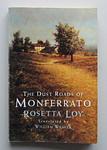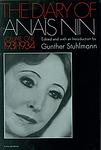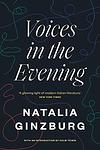The Greatest Italian "Fiction, Social & Cultural Fiction" Books Since 1950
Click to learn how this list is calculated.
This list represents a comprehensive and trusted collection of the greatest books. Developed through a specialized algorithm, it brings together 300 'best of' book lists to form a definitive guide to the world's most acclaimed books. For those interested in how these books are chosen, additional details can be found on the rankings page.
Genres
Social & Cultural Fiction is a literary category that encompasses novels and stories that delve into the complexities of society and culture, exploring themes such as class, race, gender, and identity within specific social contexts. These narratives often provide a lens through which readers can examine the intricacies of human relationships and the impact of cultural norms and societal structures on individuals and communities. By offering a fictional yet reflective portrayal of real-world social dynamics, this genre invites readers to gain a deeper understanding of the diverse experiences that shape our world. Authors in this category frequently use their characters and settings to comment on contemporary issues, challenge prevailing ideologies, and provoke thought about the possibility of social change, making Social & Cultural Fiction a powerful tool for empathy and a mirror for the ever-evolving human condition.
Countries
Date Range
Reading Statistics
Click the button below to see how many of these books you've read!
Download
If you're interested in downloading this list as a CSV file for use in a spreadsheet application, you can easily do so by clicking the button below. Please note that to ensure a manageable file size and faster download, the CSV will include details for only the first 500 books.
Download-
1. The Leopard by Giuseppe Tomasi di Lampedusa
"The Leopard" is a historical novel set in 19th-century Sicily, during the time of the Italian unification or Risorgimento. It centers on an aging, aristocratic protagonist who is coming to terms with the decline of his class and the rise of a new social order. The narrative weaves together personal drama with the larger political and social upheaval of the time, providing a rich, nuanced portrait of a society in transition. Despite his resistance to change, the protagonist ultimately recognizes its inevitability and the futility of his efforts to preserve the old ways.
-
2. History by Elsa Morante
"History" is a novel set in Rome during World War II and the post-war period, focusing on the life of a widowed schoolteacher and her young son. The narrative explores the struggles of the impoverished family against the backdrop of war, including the Nazi occupation of Rome, the Allied bombing, and the rise of Fascism. The book also delves into the themes of love, loss, and survival, offering a poignant depiction of the human condition.
-
3. The Garden of the Finzi-Continis by Giorgio Bassani
Set in Ferrara, Italy during the late 1930s, the book tells the story of the Finzi-Continis, a wealthy, aristocratic Jewish family who live in a secluded mansion with a beautiful, walled garden. The narrator, a young middle-class Jew, becomes infatuated with the family's daughter, Micoleta. As the Fascist regime's anti-Jewish laws become increasingly oppressive, the idyllic garden becomes a sanctuary for the local Jewish community, including the narrator. Despite the looming threat of the Holocaust, the family remains oblivious to their impending fate, leading to a tragic end.
-
4. The Moon and the Bonfires by Cesare Pavese
The story follows a man who, after making a fortune in America, returns to his small hometown in Italy after World War II. He finds the place significantly changed, with many of his old friends either dead or drastically different. As he tries to reconcile his memories with the new reality, he also grapples with his own identity and the impact of the war on his home. The narrative explores themes of change, identity, and the lasting effects of war.
-
5. My Brilliant Friend by Elena Ferrante
This novel tells the story of two friends, Elena and Lila, growing up in a poor neighborhood in Naples, Italy in the 1950s. Their intense, complicated friendship is marked by competition, mutual respect, and deep affection. As they navigate the challenges of adolescence, including family drama, academic struggles, and romantic entanglements, their bond is tested and transformed. The narrative explores themes of female friendship, social class, education, and the struggle for personal autonomy in a patriarchal society.
-
6. Family Sayings by Natalia Ginzburg
"Family Sayings" is a semi-autobiographical novel that explores the author's experiences growing up in a large Jewish-Italian family in the pre and post-World War II era. The narrative is a collection of family anecdotes, sayings, and stories that illustrate the dynamics, relationships, and history of the family. The book also provides a glimpse into the political and social changes in Italy during this period, including the rise of fascism and the impact of the war. The author's poignant and evocative storytelling brings to life a world that is both deeply personal and universally relatable.
-
7. The Neapolitan Novels by Elena Ferrante
"The Neapolitan Novels" is a four-part series that explores the intricate and lifelong friendship between two women from Naples, Italy. The series spans several decades, beginning in the 1950s, and provides a detailed examination of the women's lives, struggles, and the societal pressures they face. The narrative delves into themes of identity, friendship, love, violence, and socio-political changes in post-war Italy. The series is known for its rich character development and vivid portrayal of female friendship.
-
8. All Our Yesterdays by Natalia Ginzburg
"All Our Yesterdays" is a poignant narrative that delves into the lives of an Italian family and their acquaintances, set against the backdrop of Fascism and World War II. The story explores the complex web of relationships, personal struggles, and societal changes as the characters navigate love, loss, and the impact of political turmoil. Through a series of interconnected tales, the novel paints a vivid portrait of the human condition, highlighting the resilience of the spirit amidst the ravages of war and the passage of time.
-
9. The Dust Roads Of Monferrato by Rosetta Loy
Set against the backdrop of rural Italy, the novel weaves a rich tapestry of family saga and historical transformation. It follows the lives of several generations of a family in the Monferrato region, as they navigate the tumultuous changes of the 20th century. Through wars, social upheaval, and personal trials, the characters' stories intertwine with the dusty roads of their homeland, painting a vivid portrait of a community bound by tradition yet facing the inevitable march of progress. The narrative delves into themes of memory, identity, and the enduring impact of the past on the present, all while celebrating the beauty and resilience of the Italian countryside.
-
10. The Heron by Giorgio Bassani
Set in the mid-20th century Italian countryside, the novel follows the introspective journey of a wealthy, middle-aged landowner who is grappling with the ennui of his comfortable life. On a solitary hunting expedition, he reflects on his personal history, the societal changes post-World War II, and his own sense of alienation in the face of a rapidly modernizing world. As he traverses the foggy landscape, his existential crisis deepens, leading him to question the value of his existence and the choices he has made, culminating in a profound contemplation of life and death.
-
11. 1934 by Alberto Moravia
The novel is a psychological exploration of an Italian writer's life during the rise of Fascism in 1934. Struggling with creative block and a sense of political suffocation, the protagonist embarks on a journey to a seaside resort in search of inspiration and an escape from the oppressive political climate. There, he becomes entangled in a complex relationship with a young, enigmatic woman who is a member of the Fascist party. Through their interactions, the novel delves into themes of power, sexuality, and the role of the intellectual in a totalitarian society, ultimately painting a portrait of an individual's inner turmoil and moral conflict in the face of a repressive regime.
-
12. Voices In The Evening by Natalia Ginzburg
This novel unfolds in a post-World War II Italian town, weaving a poignant narrative around the lives of its inhabitants who are grappling with the echoes of the past and the complexities of the present. At the heart of the story is the relationship between a young woman and a man, whose love story is marked by missed connections and unfulfilled desires. Through their interactions and the tales of those around them, the book delves into themes of loneliness, the search for meaning, and the struggle to find connection in a changing world. The narrative is a reflective exploration of the human condition, capturing the quiet, often overlooked moments that define our lives.
Reading Statistics
Click the button below to see how many of these books you've read!
Download
If you're interested in downloading this list as a CSV file for use in a spreadsheet application, you can easily do so by clicking the button below. Please note that to ensure a manageable file size and faster download, the CSV will include details for only the first 500 books.
Download










